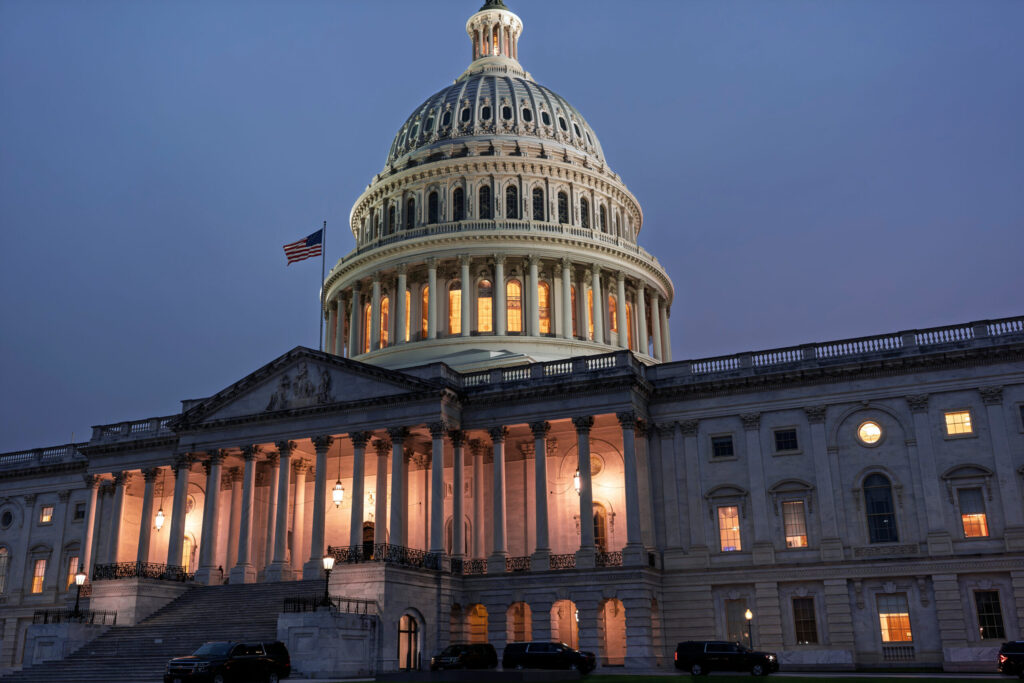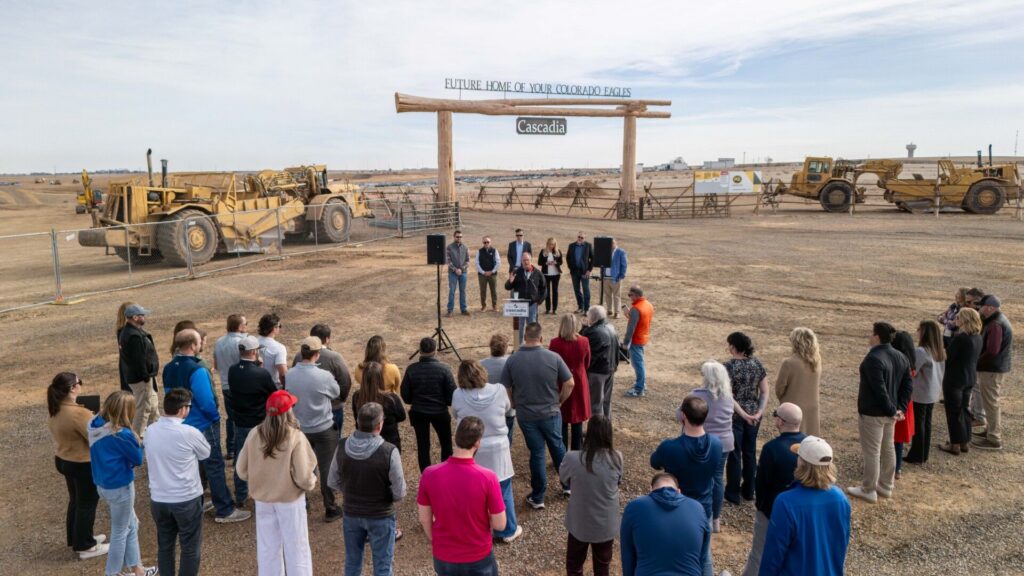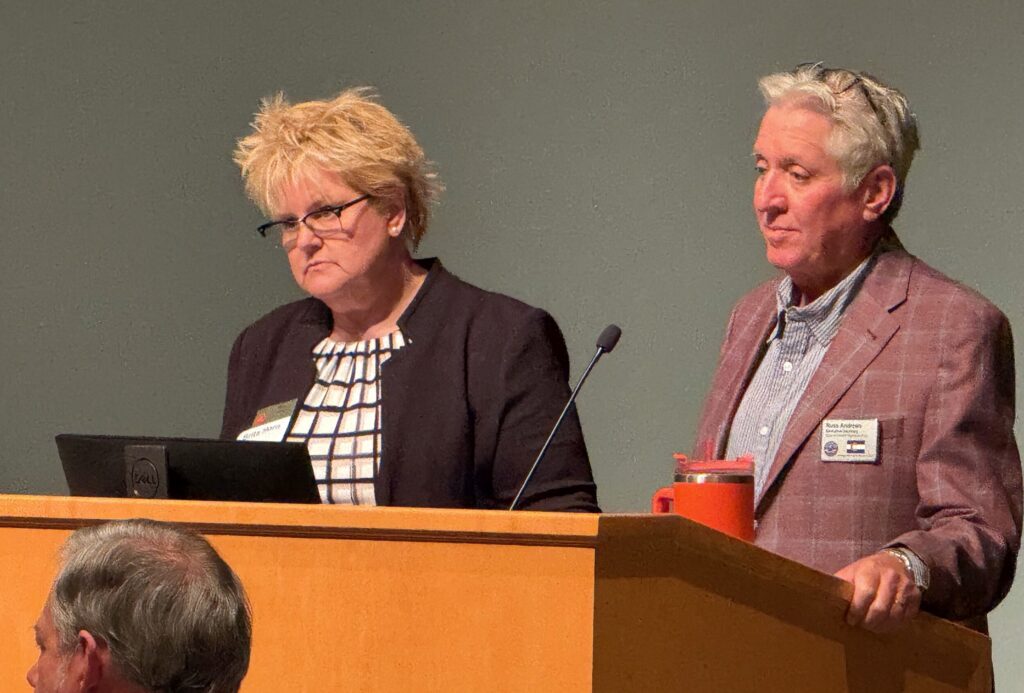Head of Colorado’s guardianship office resigns amid reports of ‘toxic’ workplace, high turnover

After almost six years and after accusations by numerous employees of a toxic work environment, the director of the state’s Office of Public Guardianship, Sophia Alvarez, has resigned.
The OPG board was scheduled to meet on Monday to discuss an interim director, although the Zoom meeting link was “locked” and the public could not listen in.
The meeting was about more than just finding an interim director, who is likely to be the deputy director, Janelle Cantu. The board also discussed whether to bring in the Employer’s Council to study “personnel matters” at OPG.
OPG is the guardian of “last resort,” for people who need guardianship services and have no one — friends, families or others —who are willing to take on that responsibility.
According to the agency’s 2024 annual report, OPG contracted with the Employer’s Council last year to provide a general HR manager, conduct an HR review of all hiring processes, screen for guardian candidates, screening and hiring a “Staff & Culture Leader” who would create an Employee Wellness Pilot Program for recruitment and retention purposes.
The report said hiring a staffing and culture leader in early 2025 would be a critical expansion.
The department was established as a pilot program through legislation sponsored by then-Rep. Dave Young, D-Greeley, in 2017. But the legislation didn’t seek funding from the state; it was supposed to be funded by gifts, grants and donations.
The initial hope was that OPG could raise $1.7 million to start up. In the first two years, they raised about $2,000.
In 2019, Rep. Marc Snyder, D-Colorado Springs, took on the OPG issue with legislation to fund the office through a series of probate fees, starting at about $800,000 per year and with authorization to hire 4.8 full-time equivalent employees.
The first guardians would begin taking referrals in Denver’s second judicial district.
The then-five-member board hired Alvarez in November 2019.
Public attention to the problems of adults in need of public guardians surfaced after several 9News investigations aired on people who were being dumped in hospitals and left there for months on end, with no place to go and no one who would take responsibility for them.
One person, who was held at a special unit designed for at-risk individuals at Denver Health, stayed there for eight years, according to one of the 9News investigations.
Hospitals are required by law to keep abandoned and at-risk adults until caseworkers can find a safe placement for them, according to 9News.
OPG began taking clients in April 2020.
Denver Health was initially the largest source of referrals for OPG in its early months. Still, by 2022, the hospital was complaining about a lack of professional standards, including a complaint about a guardian who was escorted out of the building after a negative interaction with a client.
Two clients died at Denver Health, and when the hospital notified OPG, they were told it wasn’t the agency’s business to take responsibility for clients when they’ve died.
At least 34 have died under OPG’s watch. OPG currently serves 68 clients, although they were serving 82 about 18 months ago.
Last year, Denver Health opted to use other guardian services and no longer refers clients to OPG.
But that doesn’t mean that people who need guardianship services are out in the cold.
Two agencies are picking up the slack. One of them is the Guardianship Alliance of Colorado, a nonprofit that does not receive state funding but now has 130 active clients under guardianship, and those numbers are growing by leaps and bounds.
GAC’s Bradley Torch told Colorado Politics he expects to add another 33 clients in this current fiscal year and has already received a dozen referrals in just the past month.
OPG was supposed to have guardians in judicial districts in Denver, Delta and LaJunta. The guardian program was* briefly established in LaJunta for a year, which represents the 16th Judicial District.
As of Aug. 1, there are five guardians in the 2nd Judicial District, one in the 7th. There are none anywhere else in the state.
In Feb. 2024, seven former guardians wrote to Gov. Jared Polis. “We can no longer sit back and watch this office be set up to fail,” they wrote.
In their letter to the governor, the former staffers described an inefficiently managed office whose workers have left one after another, leaving already precarious patients in worse care. They asked Polis to replace the office’s current leaders.
The former guardians said Polis never responded to them. Neither did the OPG board.
A civil rights complaint also was filed against OPG early last year, although its status is unknown.
During 2024, board meeting agendas included six executive sessions devoted to an “employee matter, which the employee has requested to be discussed in Executive Session.”
During 2025, the most recent four board meetings all included “legal discussions on personnel matters,” also held in executive session.
In its 2024 end-of-year report, OPG listed 11 guardians. By Jan. 19, seven of the 11 were gone, according to the OPG website.
That end-of-year report also discussed the staff turnover.
In 2023 and 2024, the agency “experienced guardian turnover of the original guardians from 2020, which in conjunction with issues with hiring qualified candidates, reduced our ability to increase our caseload capacity as much as we projected.”
Some of the blame fell on the Judicial Department; the report noted a “continued lack of Human Resources support” from the department.
The report noted the decline in referrals, explaining that referring agencies knew the office “was at capacity” and chose not to make referrals.
“With the Employer’s Council Human Resource assistance, the COPG will likely be fully staffed in January 2025 and will be able to accept new referrals in all jurisdictions in early 2025.”
That hasn’t happened.
The report also touched on the number of deaths among OPG clients.
Those who died ranged in age from the 40s* to their 90s, with an average age of 59.
The most common primary diagnoses related to the client’s loss of capacity or “serious mental illness, with 61% of participants having a diagnosis including schizophrenia, bipolar disorder, or other serious mental conditions, followed by 43% having a diagnosis of neurocognitive conditions,” the report said.
Of the 82 clients at the time, 96% had additional medical conditions and were medically fragile.
More letters to the board came in May 2025. One guardian and one staff person resigned at the beginning of May, following the string of resignations that started earlier in the year.
One letter listed numerous problems with patient confidentiality, an “unprofessional and hostile” workplace environment under Alvarez’s leadership, substandard training, high turnover, inappropriate behavior by Alvarez with patients and outside agency staff, and “disparaging and divisive messaging.”
In January 2025, OPG hired the “staffing and culture leader,” someone with 15 years of experience in human resources, to right the ship, that “critical expansion” referred to in the 2024 end-of-year report.
KeAre’ Rhea lasted four months. She likened the environment to working in a reality TV show and said working there was “horrible.”
She told Colorado Politics her position was created to address staffing issues and to help staff manage stress. She said she worked closely with Alvarez.
In the beginning, everything seemed fine, she said. Alvarez was “bright-eyed and bushy-tailed” and seemed open to her ideas.
But that didn’t last long, Rhea explained.
Her role changed from being collaborative to Alvarez micromanaging the human resources functions, despite Rhea’s claim of a lack of experience.
“Nobody knew anything about HR, which is why they hired me,” Rhea said.
Alvarez was aggressive and, at times, just screaming at the employees, calling them idiots. Rhea said Alvarez had these breakdowns, where she’d be crying one minute and screaming the next.
Rhea said she told Alvarez she needed to take her emotions out of it before addressing the staff. Alvarez needed more management than anyone else, Rhea said.
In her resignation letter to the board, Rhea wrote, “I have found it increasingly difficult to make meaningful change in an environment where the root of the toxicity stems from leadership practices that are counterproductive to a healthy workplace. Demeaning and condescending communication, excessive micromanagement, lack of autonomy, and instances of yelling and unprofessional conduct have created an atmosphere of fear and discomfort among staff.”
Rhea said she had never been paid for her final month of work. Brandon Fields, who chairs the OPG board, told Colorado Politics Rhea was paid for her last month of work.
Guardians are supposed to go through national certification within two years of hiring, Rhea said.
Few make it that long. None of the current guardians, according to a review of OPG’s website, has been there for even a year.
Rhea said she was required to train the new guardians, although she is not a guardian. She said she took the training so she’d understand what the guardians do, going through a “basic guardian training,” using a book provided to the agency.
Immediately after finishing her training, she was tasked with training two new guardian employees, using the book she had just used for her training.
She talked to one guardian at Alvarez’s behest, finding her stressed and unhappy. Alvarez told her the guardian was “unmotivated,” but Rhea said it was like “she was beaten down.”
Less than two weeks after Rhea joined OPG, the staff assistant resigned, and Rhea found herself assigned to handle administrative assistant duties.
Rhea, who holds a master’s degree in marriage and family therapy, said that wasn’t her job.
Rhea hired several guardians and other staff, at times without any input from Alvarez. “She was too busy to come to the interviews,” she said.
“I think I was privy to too much input,” Rhea told Colorado Politics. “I can’t fix the culture or anything around here if it is stemming essentially from the top.”
When she was hiring the last staff person before she resigned, she debated about telling him, “Don’t take the job, don’t take the job.” There were other candidates that she turned down because “they’re gonna quit because (Alvarez) is going to drive them insane.”
It was just chaos, Rhea said.
Fields said Alvarez notified the board in July that she would be leaving at the end of August. Soon after, she had to take some leave for a family emergency in another state. As a result, her formal departure date may take place at the end of August or likely within two weeks thereafter, depending on the status of the family emergency.
“We have initiated a search for an interim executive director and appreciate Ms. Alvarez’s willingness to give us more of her time to assist with that transition,” Fields told Colorado Politics.
“The Office of Public Guardianship remains committed to providing the highest standard of care to those we serve, and we support the dedication and professionalism of our staff,” Fields said in a statement.
“As part of this commitment, we take the time to thoughtfully examine and reflect on the organization’s culture, including the input received from our staff at all levels. We believe by making adjustments where needed, we can strengthen our ability to serve the community with compassion and excellence.”
He explained that by the time a guardian is appointed, most clients are either in high acuity settings, such as hospital beds, or are experiencing homelessness. Some are at end-of-life when we are first appointed, soon passing away in a hospital or nursing home under the direct care and supervision of medical professionals.
Guardians are on call 24/7 throughout the week and alternate on-call weekends. Like first responders and health care workers, guardians are generally underpaid, overworked, and operate in crisis mode much of the time, which can take a toll on them, he explained.
“We face the same hurdles in recruiting and retaining employees as other healthcare agencies since the pandemic. Nevertheless, we continue to successfully secure appropriate housing, medical and mental health care, assist with end-of-life medical care decisions, and provide other essential support needed while safeguarding the client’s rights and independence wherever possible,” Fields said.
After the 2024 letters to the governor, Colorado Politics reached out to Polis’ office and got the following response.
“Although the Office of Public Guardianship is an independent office and housed in the Judicial Department, the Governor’s Office agrees that more must be done to ensure this office can support Coloradans. That’s why we took action in partnership with the legislature to rework the Office of Public Guardianship Board of Directors, putting the necessary infrastructure in place to increase programmatic and fiscal oversight with the bipartisan Senate Bill 23-064. The Governor’s Office also worked with the bill sponsors to add language requiring an audit be completed between 2027 and 2030.”
After the 2025 letters, resignation and complaints, Colorado Politics once again reached out to the governor’s office and got about the same response.
“Although the Office of Public Guardianship is an independent office and housed in the Judicial Department, the Governor agrees that more must be done to ensure this office can support Coloradans. The Governor takes very seriously the experience of the guardians and the individuals cared for. That’s why we took action in partnership with the legislature to rework the Office of Public Guardianship Board of Directors, putting the necessary infrastructure in place to increase programmatic and fiscal oversight with the bipartisan Senate Bill 23-064. But the governor is still disappointed with the results and wants them to shape up immediately. COPG is a relatively new office and is subject to review every year. The Governor’s Office worked with the bill sponsors to add language requiring an audit be completed between 2027 and 2030, prior to the requirement that the Office of Public Guardianship operate in every judicial district by December 31, 2030.”
Editor’s note: this story has been corrected to note a guardian worked in the 16th Judicial District for a year. A previous version identified a guardian in Trinidad, but that person was the 16th Judicial District guardian.
The age range for deaths of OPG clients has been corrected to note a range of 40s to 90s. Client ages range from 20s to 90s.













